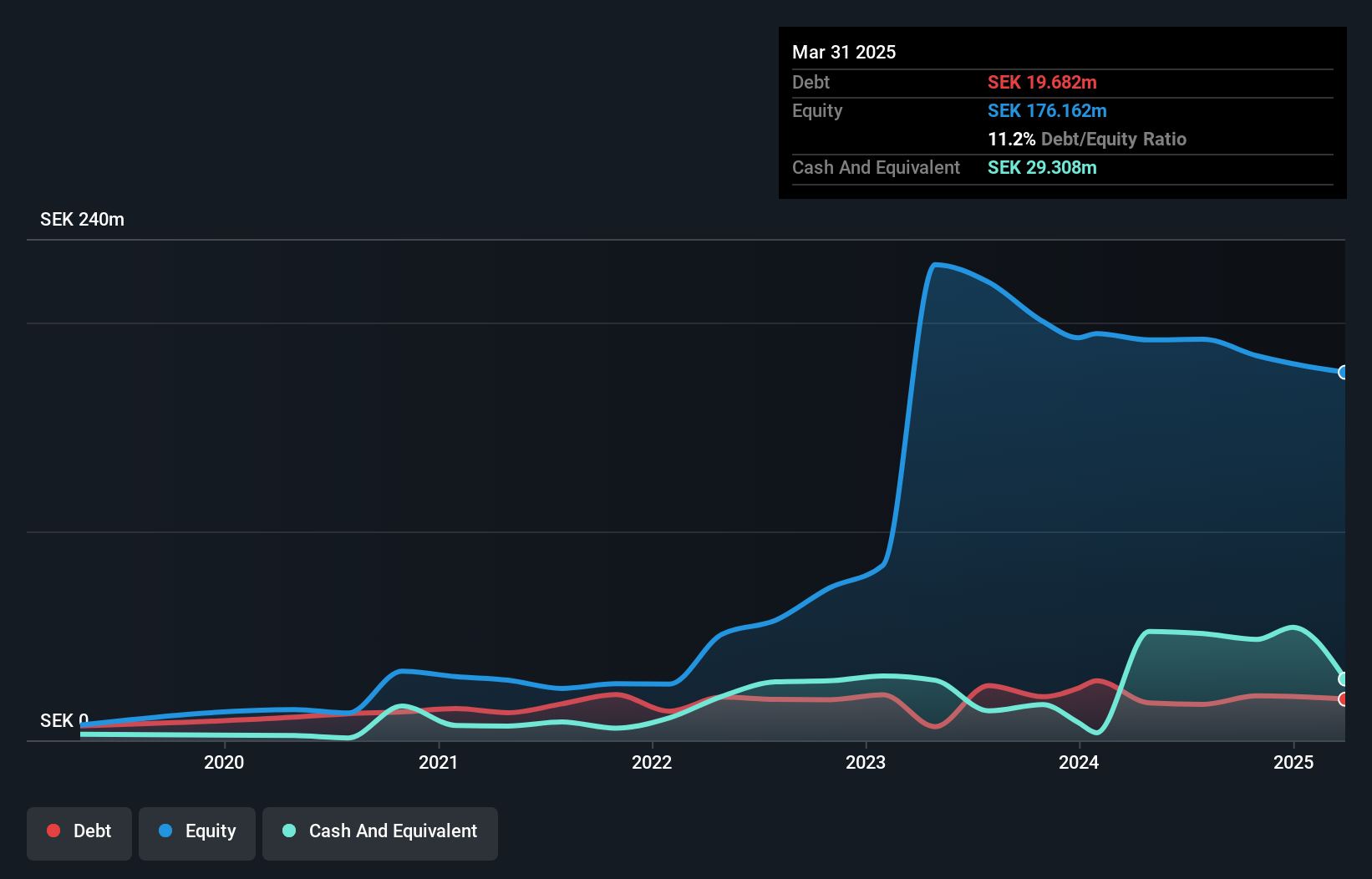Is ES Energy Save Holding (STO:ESGR B) Using Too Much Debt?
Howard Marks put it nicely when he said that, rather than worrying about share price volatility, 'The possibility of permanent loss is the risk I worry about... and every practical investor I know worries about.' So it might be obvious that you need to consider debt, when you think about how risky any given stock is, because too much debt can sink a company. Importantly, ES Energy Save Holding AB (publ) (STO:ESGR B) does carry debt. But the real question is whether this debt is making the company risky.
What Risk Does Debt Bring?
Generally speaking, debt only becomes a real problem when a company can't easily pay it off, either by raising capital or with its own cash flow. Ultimately, if the company can't fulfill its legal obligations to repay debt, shareholders could walk away with nothing. However, a more frequent (but still costly) occurrence is where a company must issue shares at bargain-basement prices, permanently diluting shareholders, just to shore up its balance sheet. Of course, the upside of debt is that it often represents cheap capital, especially when it replaces dilution in a company with the ability to reinvest at high rates of return. When we examine debt levels, we first consider both cash and debt levels, together.
How Much Debt Does ES Energy Save Holding Carry?
You can click the graphic below for the historical numbers, but it shows that as of March 2025 ES Energy Save Holding had kr19.7m of debt, an increase on kr17.9m, over one year. But it also has kr29.3m in cash to offset that, meaning it has kr9.63m net cash.

A Look At ES Energy Save Holding's Liabilities
According to the last reported balance sheet, ES Energy Save Holding had liabilities of kr53.6m due within 12 months, and liabilities of kr6.51m due beyond 12 months. On the other hand, it had cash of kr29.3m and kr28.9m worth of receivables due within a year. So its liabilities total kr1.93m more than the combination of its cash and short-term receivables.
Having regard to ES Energy Save Holding's size, it seems that its liquid assets are well balanced with its total liabilities. So it's very unlikely that the kr131.1m company is short on cash, but still worth keeping an eye on the balance sheet. Despite its noteworthy liabilities, ES Energy Save Holding boasts net cash, so it's fair to say it does not have a heavy debt load! When analysing debt levels, the balance sheet is the obvious place to start. But ultimately the future profitability of the business will decide if ES Energy Save Holding can strengthen its balance sheet over time. So if you want to see what the professionals think, you might find this free report on analyst profit forecasts to be interesting.
See our latest analysis for ES Energy Save Holding
Over 12 months, ES Energy Save Holding reported revenue of kr267m, which is a gain of 50%, although it did not report any earnings before interest and tax. With any luck the company will be able to grow its way to profitability.
So How Risky Is ES Energy Save Holding?
Although ES Energy Save Holding had an earnings before interest and tax (EBIT) loss over the last twelve months, it generated positive free cash flow of kr2.1m. So taking that on face value, and considering the net cash situation, we don't think that the stock is too risky in the near term. The good news for ES Energy Save Holding shareholders is that its revenue growth is strong, making it easier to raise capital if need be. But that doesn't change our opinion that the stock is risky. The balance sheet is clearly the area to focus on when you are analysing debt. But ultimately, every company can contain risks that exist outside of the balance sheet. Case in point: We've spotted 1 warning sign for ES Energy Save Holding you should be aware of.
Of course, if you're the type of investor who prefers buying stocks without the burden of debt, then don't hesitate to discover our exclusive list of net cash growth stocks, today.
Have feedback on this article? Concerned about the content? Get in touch with us directly. Alternatively, email editorial-team (at) simplywallst.com.
This article by Simply Wall St is general in nature. We provide commentary based on historical data and analyst forecasts only using an unbiased methodology and our articles are not intended to be financial advice. It does not constitute a recommendation to buy or sell any stock, and does not take account of your objectives, or your financial situation. We aim to bring you long-term focused analysis driven by fundamental data. Note that our analysis may not factor in the latest price-sensitive company announcements or qualitative material. Simply Wall St has no position in any stocks mentioned.
 Index Options
Index Options State Street
State Street CME Group
CME Group Nasdaq
Nasdaq Cboe
Cboe TradingView
TradingView Wall Street Journal
Wall Street Journal